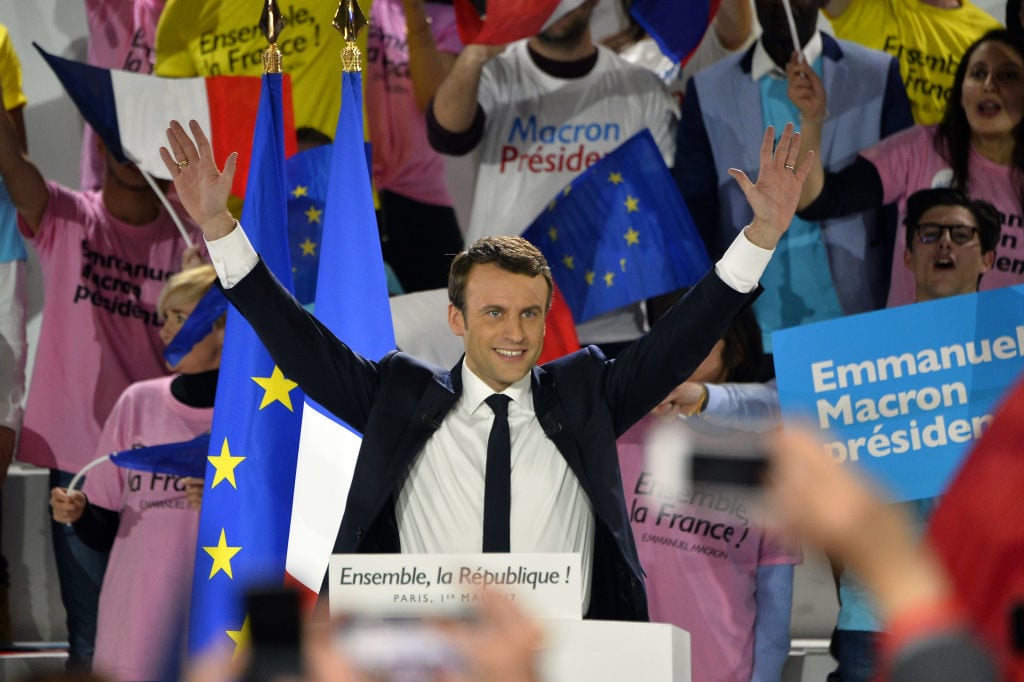Market
‘We Escaped a Nightmare’: Art World Welcomes New French Leader Macron
Dealers say the French art market dodged a serious bullet.

Dealers say the French art market dodged a serious bullet.

Brian Boucher

As results from the French election started to roll in on Sunday, visitors and exhibitors at this week’s TEFAF New York fair crowded around their glowing iPads, awaiting the results. The art world has reacted with enthusiasm and relief to the decisive win of the centrist candidate Emmanuel Macron, who scored some 66.1 percent of the vote over far-right contestant Marine Le Pen, who scored only 33.9 percent.
“We escaped a nightmare,” said Paris dealer Kamel Mennour.
“Vive la France! Vive l’Europe! Vive Macron!”, declared dealer Larry Gagosian, who maintains a venue in Paris among his 16 locations, making a rare public comment via email.
“This is exactly what we needed at this point,” said Austrian dealer Thaddaeus Ropac. “He was the most pro-European politician of all of them.”
The entire world—dealers, artists and curators included—watched France’s election returns with bated breath. The election was considered another potential tipping point for nationalism and populism following Brexit in the UK and the election of US president Donald Trump last year.
At 39 years old, Macron—who only recently established the “En Marche! (Onwards!)” party—is the youngest president in French history. In his victory speech, delivered in front of the Louvre’s I.M. Pei-designed pyramid entrance, Macron said he would “work to rebuild the link” between France and the rest of Europe.
Investing in the future of culture
Macron’s cultural platform is not entirely clear, but since an April runoff election, candidates’ cultural positions lined up generally along two lines, with the right in favor of preservation of France’s traditional cultural heritage, and those on the left favoring support for contemporary art. The new president’s specific cultural priorities will come into better focus after the parliamentary election next month, when Macron will name a culture minister.
During the campaign, Macron—who has said that “culture is essential for the future of our country”—pledged to maintain the current culture budget of €2.7 billion (a little over $2.5 billion). He also proposed giving students under 18 a €500 voucher to pay for cultural activities of their choice.
Le Pen, by contrast, pledged to cut culture budgets but increase funding for conservation funding; her proposed cuts would have had serious consequences in a country where museums rely on substantial state support.
Good news for the art market
For now, dealers are optimistic about what Macron’s win means for the art market. Paris-based Outsider art dealer Pol Lemétais said: “Last month, no one wanted to buy. People were very scared of the future, so the market was very down, and I think now that people are happy and reassured, and it will get much better.”
Mennour had a similar forecast. “I’ve had French people living abroad tell me they would not have returned if Le Pen won,” he said, “but since last night they say that they are thinking of coming back to France. These entrepreneurs can mix a new blood and a new energy into the art world.”
Dodging a bullet
French artists and dealers alike are perhaps happier to be rid of Le Pen than they are about Macron in particular. (The election drew a record low turnout.) The French art world mobilized to campaign against Le Pen, whose party, the Front National, proposed restricting government funding for exhibitions on certain subjects, including the refugee crisis. “Everything between you and us is incompatible,” artists, including Kader Attia, Christian Boltanski, Annette Messager, and Orlan, wrote in an open letter to Le Pen in 2015.
Asked what the outlook for the contemporary art market would have been had Le Pen won, Thaddaeus Ropac, a longtime Parisian, replied, “I can’t even think about it. It would have been unimaginable. We don’t even know what she really thinks about contemporary art. It would not have been on her agenda. It would have reduced the landscape to solely preserving French heritage.” He added: “We don’t want Paris to become just one big museum, but rather we want it to be one of the places where great art is produced.”
Of course, members of the art world are not the only ones who feel like a disaster has been averted. Mennour said: “This morning, for the first time in a while, as I was out having my morning coffee, I saw faces with hope for the future.”